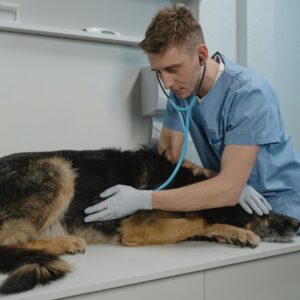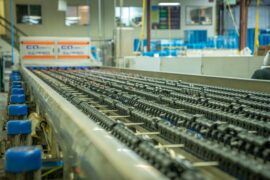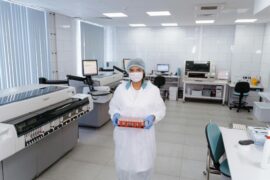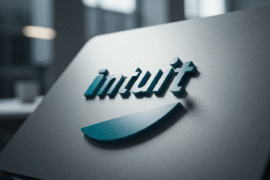This article may contain references to products or services from one or more of our advertisers or partners. We may receive compensation when you click on links to those products or services. Nonetheless, our opinions are our own.
For decades, formula has been considered the safe alternative for babies who cannot breastfeed. However, a groundbreaking new study shows that mother’s milk provides benefits that formula simply can’t match.
Researchers have found that donated human milk is far superior to formula. It significantly helps reduce the risk of one of the most dangerous conditions that can affect premature infants. In this article, we will examine the key findings of this landmark research.
Why Is NEC Concerning?
Necrotizing enterocolitis (NEC) is a dangerous intestinal disease that mainly affects premature infants. When the formula is given to infants instead of breast milk, it often shows up within the first two weeks of life.
In NEC, bacteria invade the intestinal wall. Inflammation then sets in, which can cause a break or opening that allows harmful germs to leak into the abdomen. If left untreated, it can lead to severe infection and even death.
The exact reasons are unknown to experts. However, it is known that preterm infants have immature and less developed lungs and intestines compared to full-term babies. This means their bodies are not as efficient at circulating blood and oxygen. They also face challenges breaking down food and fighting off infection.
Fortunately, NEC is not common. It impacts about 1 in 2,000 to 4,000 births. While any newborn can be affected, preemies under 3.25 pounds are most at risk. Additional high-risk groups include babies who:
- Receive formula by mouth or tube feeding
- Had a difficult delivery or have low oxygen levels
- Have an excess of red blood cells
- Have an existing gastrointestinal infection
- Are seriously ill, or have received a blood transfusion
Can Formula Milk Cause NEC?
Research suggests that formula feeding may increase the risk of necrotizing enterocolitis (NEC) in premature infants.
Studies show that preterm infants fed bovine milk-based formulas have a higher risk of developing NEC. In contrast, those receiving human breast milk or exclusively breastfeeding face lower chances. The formula may affect the underdeveloped digestive systems of preterm infants, potentially contributing to NEC.
Different preterm formulas appear to have varying effects on gut health, inflammation, and microbiome composition. Animal studies show some formulas cause more significant intestinal damage than others. The specific nutritional makeup and ingredients of different formulas might play a role in these outcomes.
Breast milk is widely considered the best nutrition for infants, especially those born prematurely. It’s been shown to lower NEC rates and improve developmental outcomes. However, when breast milk isn’t available, formula is often used as a substitute.
Some research has explored whether probiotics could help reduce the potential negative effects of formula feeding. Certain probiotic strains may help lessen intestinal injury linked to some formulas, but more research is needed to fully understand their effectiveness.
Parents of infants who developed NEC after being fed certain infant formulas are now taking legal action through product liability lawsuits. As per the latest NEC lawsuit update, two major brands of cow’s milk-based formulas are at the center of the controversy. The brands are Similac, produced by Abbott Laboratories, and Enfamil, made by Mead Johnson. Both of these formulas are widely used and have been associated with a potentially higher risk of NEC in premature infants.
According to TorHoerman Law, parents claim that the manufacturers knew about these risks but still chose to stay silent. Parents are seeking compensation for medical costs, pain, and suffering of their children who developed NEC.
Benefits of Donated Human Milk for Extremely Preterm Infants
As per NIH, researchers conducted a study to compare outcomes for extremely preterm infants fed either donated pasteurized human milk or formula. Such infants, born before 29 weeks gestation or under 2.2 pounds, are at high risk for health issues like NEC. The study hoped to determine if donor milk provided neurodevelopmental benefits over formula.
A total of 483 infants were enrolled from 15 Neonatal Research Network centers. They were randomly assigned to receive either donor milk or formula as their primary diet in the NICU. Some in each group received small amounts of their own mother’s milk if available. Infants were fed their assigned diets until discharge, 120 days, or death.
Around 22-26 months of corrected age, infants underwent developmental testing with the Bayley Scales. Cognitive, language, and motor scores did not significantly differ between the donor milk and formula groups. Among infants who received no maternal milk, scores also showed no differences. Death rates before testing were statistically similar between groups.
However, the donor milk group showed a notable advantage in terms of health outcomes. These infants grew more slowly but had half the NEC rate of the formula group, at 4.2% versus 9%. This suggests donor milk may protect against NEC’s damaging effects similarly to maternal milk.
In conclusion, while no neurodevelopmental benefits emerged, donor human milk demonstrated a significant reduction in NEC incidence for extremely preterm infants compared to formula. This therapeutic benefit supports ensuring the availability of pasteurized donor milk for NICUs.
FAQs
Q: What is a common complication associated with NEC?
A: One serious risk is intestinal perforation, particularly in the terminal ileum section. This can then lead to life-threatening peritonitis or sepsis in around 20-30% of cases. Sadly, NEC may even be fatal for approximately 20% of infants who develop this condition.
Q: What type of compensation may families receive from NEC lawsuits?
A: Plaintiffs taking legal action against formula manufacturers for NEC affecting their child may be entitled to financial reimbursement. This could cover healthcare costs, lost income, and pain and suffering damages. Estimates suggest average payout amounts could range anywhere from $50,000 up to $500,000 or more per claimant.
Q: When are preemies most vulnerable to NEC?
A: Premature infants, particularly those fed formula instead of breast milk, are at the highest risk of developing NEC. This risk is most significant within the first two weeks after birth. One early symptom is difficulty tolerating feedings, often paired with abdominal swelling (bloating) and green vomiting. Close monitoring is important during this initial period in the NICU.
This groundbreaking study offers compelling evidence that donated human milk is superior to formula in protecting vulnerable premature infants. It highlights the significant advantage of human milk in reducing the serious risks of necrotizing enterocolitis.
While more research is needed, the findings suggest that donor milk can play a key role in improving health outcomes for extremely preterm newborns. This is especially important when a mother’s own milk is not available.
Given the potentially life-threatening consequences of NEC, access to pasteurized donated human milk is crucial. Prioritizing this access should be a top priority for NICUs caring for high-risk infants. The short-term and long-term health impacts justify increased investment and support for human milk donation programs.

Reviewed and edited by Albert Fang.
See a typo or want to suggest an edit/revision to the content? Use the contact us form to provide feedback.
At FangWallet, we value editorial integrity and open collaboration in curating quality content for readers to enjoy. Much appreciated for the assist.
Did you like our article and find it insightful? We encourage sharing the article link with family and friends to benefit as well - better yet, sharing on social media. Thank you for the support! 🍉
Article Title: Donated Human Milk Outperforms Formula in Reducing Risk of NEC in Newborns
https://fangwallet.com/2024/12/09/donated-human-milk-outperforms-formula-in-reducing-risk-of-nec-in-newborns/The FangWallet Promise
FangWallet is an editorially independent resource - founded on breaking down challenging financial concepts for anyone to understand since 2014. While we adhere to editorial integrity, note that this post may contain references to products from our partners.
The FangWallet promise is always to have your best interest in mind and be transparent and honest about the financial picture.
Become an Insider

Subscribe to get a free daily budget planner printable to help get your money on track!
Make passive money the right way. No spam.
Editorial Disclaimer: The editorial content on this page is not provided by any of the companies mentioned. The opinions expressed here are the author's alone.
The content of this website is for informational purposes only and does not represent investment advice, or an offer or solicitation to buy or sell any security, investment, or product. Investors are encouraged to do their own due diligence, and, if necessary, consult professional advising before making any investment decisions. Investing involves a high degree of risk, and financial losses may occur including the potential loss of principal.
Source Citation References:
+ Inspo












































